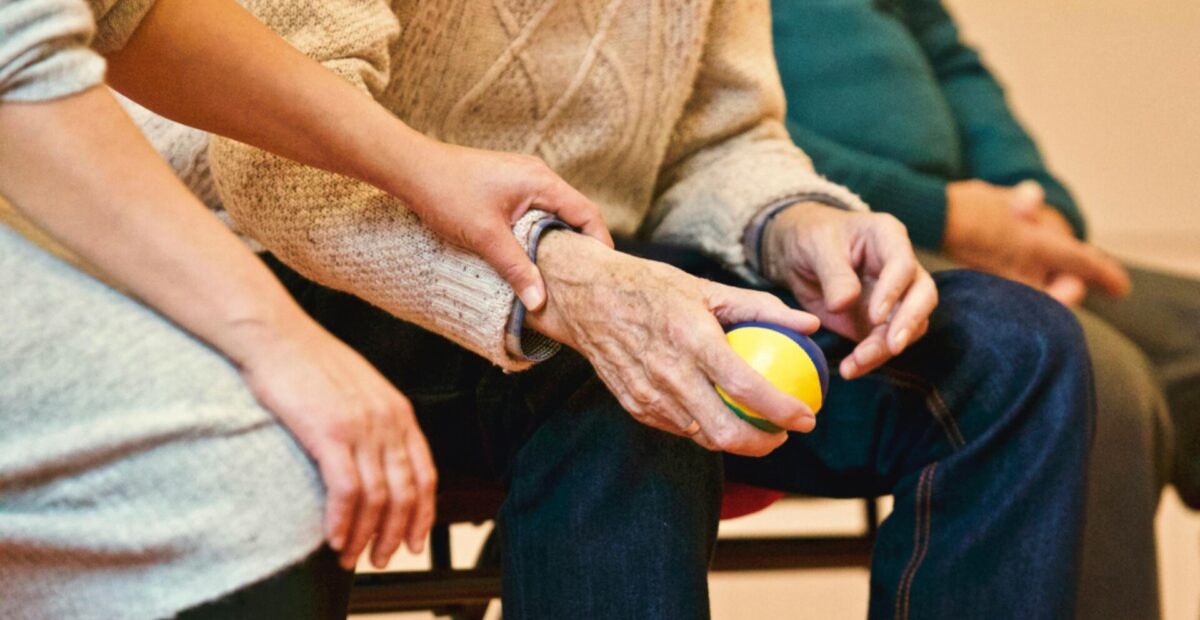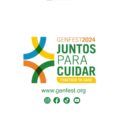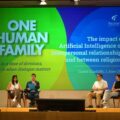
Workshop
The need for a qualitative leap in the accompanying of people who live in the streets

Interview with Pablo Vidal – Working every day with people with addiction problems and in a situation of destitution forces one to come to terms with a very complex reality. In what ways can we help them? What should we do to prevent ourselves from getting used to an unjust situation? What measures does the current context require? One of the referees of the Caritas of Argentina offers us some answers.
In 2016, the Caritas of Argentina created the Department of Pastoral and Community Work for Addictions (APyCA, the acronym in Spanish) that works with the realities afflicted by drugs, often in contexts of indigence. The department is directed by Pablo Vidal, who, in dialogue with the Ciudad Nueva, shares his point of view on the increasing poverty in the country and on how to face it, with a particular attention to the necessity of helping to reconstruct relations. In addition, considering the winter months, he retains it as essential to “give answers with a better understanding.”.
What information do you have on the current situation of the homeless population in Argentina?
As for many other social problems, even the numbers of the people who live on the streets in Argentina are rapidly increasing, but, as of today, there are no real national statistics that share the exact numbers. Some time ago a law was passed to be able to census these people, for which I believe this year or maybe the next we will have a clearer image of the situation. On one side, it is quite evident that it is a phenomenon that’s increasing, but on the other side, the infrastructures to face this problem are missing. There aren’t many structures able to accommodate men, women, and families who live on the streets. Argentina lacks on this point.
Is a specific plan of action planned for the forthcoming winter months?
There is no specific plan of action planned this year, but we, the Caritas of Argentina and especially the Familia Grande del Hogar de Cristo, have been accompanying the people on the streets for a long time, and it is an activity that is fortunately developing more and more. Last year we put in action a plan for the winter to adapt and prepare new structures. It worked quite well, and it allowed us to open new church spaces to accommodate, for example, in Córdoba, Rosario, and various places in the country, again with initial support from Caritas. In most of the places, Caritas has already been working there for some years. In addition, the parishes generally distribute meals to these people before accompanying them to sleep in the various facilities.
The Department that you direct was created in 2016. What necessities had emerged?
It was Oscar Ojea’s decision, who then was the president of the Caritas of Argentina, based on a reality that, in that period, was emerging in various places of the country, that of the accompanying of the people struck by this suffering from the scourge of the drugs. The problem of addiction worldwide is recent as it first appeared in the 1980s and 1990s: the bishops would talk about it already in those years. It was mentioned also in the document of Aparecida, 15 years ago. It said that the drugs were a pandemic that would hit all the social classes, a drop of oil that would contaminate everything. Today we see as this reality has extended everywhere. There is not a single community in Argentina that does not suffer due to this problem. And it is for this reason that the new department was born to respond to this challenge of our time with a greater energy.
In your work, you place close attention to the relations and on the human relationships. Why?
The distinctive characteristic of our work is the capacity to create relations. The streets and drugs isolate you from everything. At a certain point in time, you find yourself cut out from your family, your workplace, your friend group, and even from your neighborhood. And sometimes, besides not having a job, not having finished studying, or having a legal problem, there’s a deeper suffering that escapes all statistics: that of being orphans of love. We realize of the immense solitude of the boys and girls who do not have a family and who are left alone. For this Caritas, with a Christian community, with our neighborhood centers, has a great capability of creating a big family to further create new affectionate relations that helps the development of a person. This is what makes a difference, the capability of being a family and accompanying them for their whole life. We do not accompany a person only because he lives on the streets. We accompany him also on his birthday, when he gets married, and when he finds a home. For us, as a religious community, this has been a clear goal since the beginning: to create a community and better, to create family. In front of this solitude and of this lack of love, we create family to accompany. To accompany a person when he is sick, in the hospital, in jail, on the streets… So that he knows he will always have a family, a home that is always open.
The society of Argentina has a great innate solidarity. How does it react in front of this problem, especially in the difficult periods such as the winter season?
The society of Argentina has solidarity in their veins, and it can be seen. In many parishes, not only clothes are donated, but meals are prepared and distributed in the streets as well. This is all seen, and it requires lots of work in many neighborhoods from the church and other organizations and foundations of civil society that unite forces to help those who live on the streets. From my point of view, the challenge is to jointly, all together, take a qualitative leap in the way we accompany these people. Besides distributing meals and clothes, the need to set up structures to accommodate these people for the night arises, especially when it is very cold. I believe that in this case not only the state but also the church has a great responsibility as they have many unused spaces during the winter, like, for example, halls and chapels that could be opened. At least during the winter, so that no one dies of cold in the streets. Argentina is a very supportive country, and a lot of work has already been done, but, in front of an ever growing and complex problem, the need to improve the quality of the solutions arises. For this reason, opening spaces to people who live on the streets and to families is very important.
To see people in situations of poverty is something that happens every day. How can we avoid getting used to the marginalization?
There’s something in the human being that makes sure we all get used to this reality. And I am not just talking about the people who have never directly dealt with it. We also work with this every day, and at times we end up considering it as normal. It happens a bit out of defense, as it is difficult to handle this much suffering, for which we simply get used to these unjust situations, like, for example, a mother and her child living in the streets. I believe it is a psychological mechanism of self-defense that, for me, is impossible to overcome when we pass from accompanying these people individually to doing it as a community. To accompany them as a community allows us to better face these situations and overcome this tendency towards habit. Sometimes someone who comes with you and tells you, “No, this is not right; we must do something,” is enough. It is an important aspect. It is a topic on which we must raise awareness towards society. And, as I was saying, to give answers with a better understanding. I believe that it is the only way to give people the opportunity to understand that who lives in the streets does not do it due to a choice; they do not consume drugs due to a choice, but because they have a story of great suffering that burdens their shoulders.
What would you say to those who wish to give you a hand?
To come and get to know who lives on the streets. Before helping, one must make friends. Returning to what we were saying earlier about relations, it almost comes naturally to put ourselves in the role of who “is better than the other,” and sometimes we forget that the other has something to teach us. Reaching out to others starts with an attitude of friendship without anything in return. When we get to know each other and make friends, life is much more beautiful.
Source:






